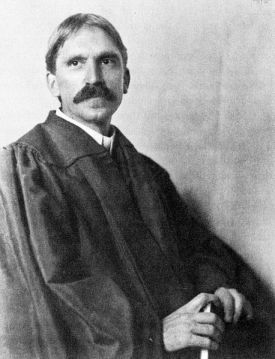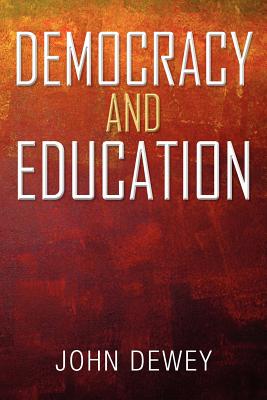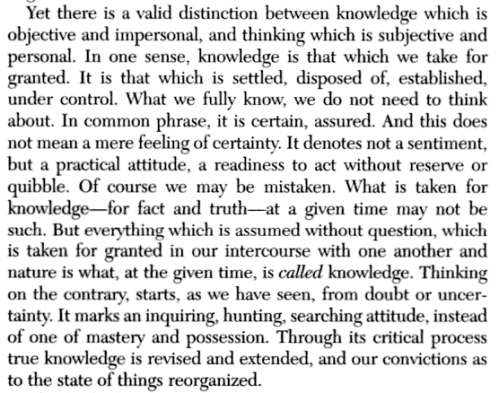There has been quite a lot of discussion of unions lately, and to be honest, I think it is kind of exciting. Unions had been quietly fading away, especially in the private sector, but now they seem to be in the headlines once again and I think the attention that is being paid to unions might end up back-firing against those who seek to eliminate them. We heard a lot about Unions with the WalMart employee’s planned “Black Friday” events organized by OUR Walmart: Organization United for Respect at Walmart and the recent controversies over the introduction of “Right-to-Work” laws in Michigan. In this post, I want to concentrate on private-sector employees.
The following video made the rounds of the internet a little while ago. It purports to be an anti-union training video produced by Target. (I looked it up on snopes.com and did not find any debunking, so I am going to assume it is legit).
One of the things that I find so interesting about this video is the way it seems to have a number of internal contradictions. For example, Target is a business, and when we think of Target we are supposed to think of a happy family according to these actors’ lines. In contrast, when they describe the unions, all of a sudden “business” becomes some kind of frightening and corrupt thing. So in the one case, business is supposed to be benign but in the other it is supposed to be scary (complete with scary music! Which is great).
But there is something else odd about this, which is that they seem to be importing a for-profit business model into the not-for-profit union domain. For example, they state that a union “is not a charity” it is a business. But it has no products, only memberships to sell. The “only alternative” (to what is not made clear) is to get more people to pay more money to them in dues every month. But unions aren’t seeking to increase their own profits, because unions are not-for-profit organizations. Therefore, they don’t need to follow business models that require the “only alternative” of getting more people to pay more money to increase profits.
Second, unions sell services, they don’t sell products and they don’t sell memberships. Many businesses don’t sell products. Many businesses sell services. If we want to think of unions as businesses, then they should be thought of more along the lines of service industries and not along the lines of widget-makers. The services that unions sell are bargaining services, and they sell a good service when they are able to effectively bargain on workers’ behalves.
Now, it might be true that there are certain oddities about unions that make them somewhat market-unresponsive. For example, Wikipedia describes a number of union types:
- A closed shop (US) or a “pre-entry closed shop” (UK) employs only people who are already union members. The compulsory hiring hall is an example of a closed shop—in this case the employer must recruit directly from the union, as well as the employee working strictly for unionized employers.
- A union shop (US) or a “post-entry closed shop” (UK) employs non-union workers as well, but sets a time limit within which new employees must join a union.
- An agency shop requires non-union workers to pay a fee to the union for its services in negotiating their contract. This is sometimes called the Rand formula. In certain situations involving state public employees in the United States, such as California, “fair share laws” make it easy to require these sorts of payments.
- An open shop does not require union membership in employing or keeping workers. Where a union is active, workers who do not contribute to a union still benefit from the collective bargaining process. In the United States, state level right-to-work laws mandate the open shop in some states. In Germany only open shops are legal; that is, all discrimination based on union membership is forbidden. This affects the function and services of the union. An EU case concerning Italy extended this principle to the rest of the EU in that it stated that, “The principle of trade union freedom in the Italian system implies recognition of the right of the individual not to belong to any trade union (“negative” freedom of association/trade union freedom), and the unlawfulness of discrimination liable to cause harm to non-unionized employees.” (Source: Wikipedia “Trade Union”)
Now, Republicans in so-called “Right-to-Work” legislation like to focus on the first three types listed above (closed shop, union shop, and agency shop unions). The Republicans often suggest that requiring union dues violates negative freedoms of association (the right not to associate, if one so chooses). There might be some truth to these complaints. For example, I would be mighty unhappy if I were forced to pay my hairdresser (a service provider) every month whether or not I wanted a haircut.
On the other hand, “Right-to-Work” legislation favours open-shop unions, and this too has its troubles. Open shop unions allow employees to decide whether they want to associate as a union (the positive freedom to associate without government interference requires allowing workers to continue to make this choice if so desired, though this right is not honoured in all of the United States or Canadian provinces). But those who choose not to associate with the union are still able to reap the benefits of the services provided by the unions. This is destined to weaken the union. Keeping with the hairdresser metaphor, if I were not required to pay my hairdresser, but I was still able to obtain a haircut whenever I wanted one, there would be no incentive for me to pay the hairdresser. Sure, a few people who really believed in the skills of hairdressers might continue to pay, but in short time most (if not all) hairdressers would likely go out of business. Ironically, in making the anti-union case, the Target video points out precisely this problem: “And no body wants to pay dues for something they already have” (Source: “Doug” about minute 3:22).
Before I go on to suggest an alternative, it might be worth considering whether union services are something we bought once, and now “already have” forever. It is a strange suggestion, since most services are things we buy on an ongoing basis and if we stop buying them, then we lose the service. Perhaps if we were thinking of unions as something that sold a “product” then this would make sense. For example, if I buy a book, I don’t need to keep buying it every month. But as we’ve already discussed, unions sell a service, not a product. If I have enrolled in a cleaning service, then I will need to continuously put money into that service, otherwise the cleaners will no longer come.
This video: Debunking anti-union myths takes on this point directly:
This video notes that unions are a service. One of the things that they provide is on-going representation in addition to helping to enforce the legislative gains that were made by unions in the past. Even if labour laws exist, they will not be effective unless they are enforced. Part of the service that this video claims is provided by unions is assistance in enforcing their legal rights under labour standards legislation.
In contrast, Target tries to have it both ways. They paint for-profit businesses of the past as evil, while making for-profit businesses of the presents into benign entities. So they are not daemonizing unions, you see. Just modern not-for-profit unions (businesses), who are “out of step” with the evolving and competitive modern for-profit businesses. Here is Gwen Sharpe on this issue:
What I found especially striking was the segment starting at about 3:10, where they argue we don’t need unions because, basically, they were so effective in the past, they already fixed everything! There’s no more child labor, you can get worker’s comp if you’re injured…what more could you need a union for? So on the one hand, today unions are useless, empty organizations that just take your money and give you nothing, but in the past, they were great. Presumably employers only had to be told once to clean up, and then for all time everything is fixed. (source: Sharpe)
In addition, the union can serve as a buffer or “anonymizer” between the employee making the complaint and the employer who will hear the complaint. Is this necessary? I guess that is for employees to decide for themselves. The union case is that if an employee makes a complaint about the way they are being managed, and the only outlet for this complaint is that very same management, then there is a heightened chance that the employee will be fired for the complaint. Target disagrees:
[“Maria”] Person 2: …Target prides its self on our open door policy. Ask your team leader, ask your ETL [executive team leader], or ask any supervisor. There doors and every door are always open to you and what you have to say.
I don’t know how most employees might feel about talking about their problems with management directly to management, but as a union member (not a ‘higher up’ whose whole job is negotiating, but just a regular employee who is a member of a union whose job has nothing to do with union negotiations), I am pretty happy to have someone to act as a go-between so that I don’t have to fear being fired.
Link Round-Up and Transcript of the Target Video below the fold.













